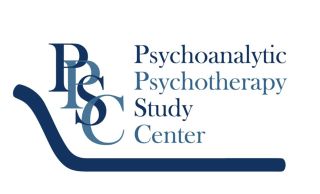Therapy
Getting Psychotherapy to Ukrainian Refugees in the U.S.
It takes a special effort to get care to those who don't usually seek it out.
Posted September 28, 2023 Reviewed by Hara Estroff Marano
Key points
- At least one psychotherapy organization is adapting to meet the needs of Ukrainian refugees.
- Skilled therapists train volunteers to provide specialized trauma care.
- Comprehensive care also includes legal aid, translation, and referral to resources.

When Judy Levitz founded the Psychoanalytic Psychotherapy Study Center (PPSC) in 1986, she didn’t expect that in 2023 a large part of her work would be focused on Ukrainian refugees. The original goal was to expand the reach of services provided by mental health professionals to individuals in the New York City area.
Beyond the Most Privileged
“We wanted to make the services available to communities that are not likely to seek out psychoanalysis. We wanted to make it available to everyone,” Levitz recalls.
She knew that in the late 1980s, the benefits of psychoanalysis were too often limited to the wealthy and the white. “My background is community health,” she points out, “and I knew and know that really good therapy is about changing patterns in ways that help people cope with whatever they have to cope with. I never wanted those benefits to be limited to the more privileged demographics.”
In keeping with the imperatives of the times, PPSC recently expanded its Advisory Board with an eye to equity and inclusion and a commitment to build bridges with non-white communities—Asian, African-American, Hispanic. The goal was not just to broaden access to the center’s therapy services—which are provided at reduced rates—but to train a diverse group of professionals and add them to the faculty.
Russia’s War on Ukraine
When Russia began its full-scale invasion of Ukraine last year, members of PPSC recognized almost immediately that there could be direct effects on their mission. “We knew that this could mean large-scale migration of Ukrainian refugees to the U.S., Levitz reports. “We assessed that those who came here would have some need for mental health support.”
As people who follow the news and who have associates in the Ukrainian community, she and her colleagues expected that “the traumas the refugees were likely to have endured and could be extraordinarily serious: multiple rapes, loss of or severe injury to loved ones, loss of every material possession while being uprooted and relocating to a new country without money, shelter, or job.”
Levitz reached out to members of the PPSC community and beyond, asked professionals to donate an hour a week to support people in need. The model for approach was borrowed form organizations such as Give An Hour: Mental Health for Life.
Among the many respondents were experts in dealing with trauma. They were asked to train psychotherapists lacking such expertise. “Any psychotherapist who volunteers for our program will get additional support beyond the training they already have,” Levitz reports.
Other respondents, such as clinical social worker Anya Lukianov, who is now PPSC’s Lead Project Coordinator, volunteered to take on the tasks of developing necessary infrastructure and leading essential committees. “Without people like Anya and her teams, this project ouldn’t exist,” notes Levitz.
Support for Refugees
PPSC now provides an array of services for refugees displaced from Ukraine.
- Trained advocates offer support to asylum seekers in need. Levitz says that the advocates have completed asylum-specific training through the Weill Cornell Center for Human Rights and have received an affidavit of eligibility, allowing them to provide informed, quality care. Asylum advocates can support referrals by linking them to an immigration attorney.
- Professional translators who speak English, Ukrainian, Russian, Spanish, and other languages. They’re there to provide referrals with translation of legal documentation including Social Security forms, Medicaid forms, and work permit applications.
- Volunteers also help referrals with needed care coordination and in securing basic needs such as housing and employment.
- Volunteer clinicians, who may or may not be members of the PPSC community (trainees, faculty, or supervisors), may be independent practitioners who have agreed to affiliate and participate in the PPSC effort. All participating volunteers have the appropriate license, insurance, and supervision as needed and abide by project protocols.
The PPSC welcomes additional volunteers. Contact Levitz at judylevitz [at] gmail.com
In a world rife with challenges and crises, Levitz and the Psychoanalytic Psychotherapy Study Center demonstrate that mental health support can be both adaptive and inclusive. As the center extends its transformative services to Ukrainian refugees and underserved communities alike.
References
PPSC Home Page: https://www.ppsc.org
Gofundme campaign for the PPSC: https://gofund.me/2273709e


